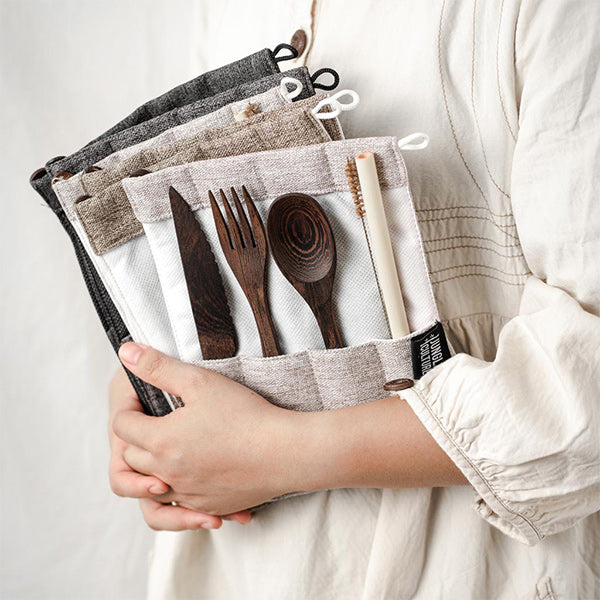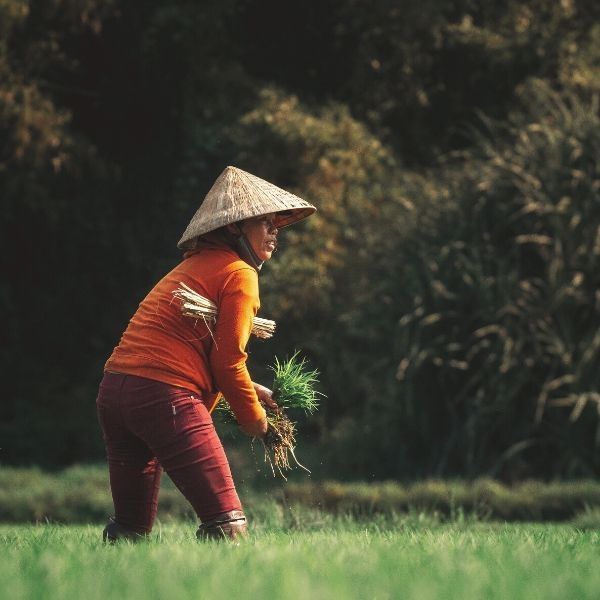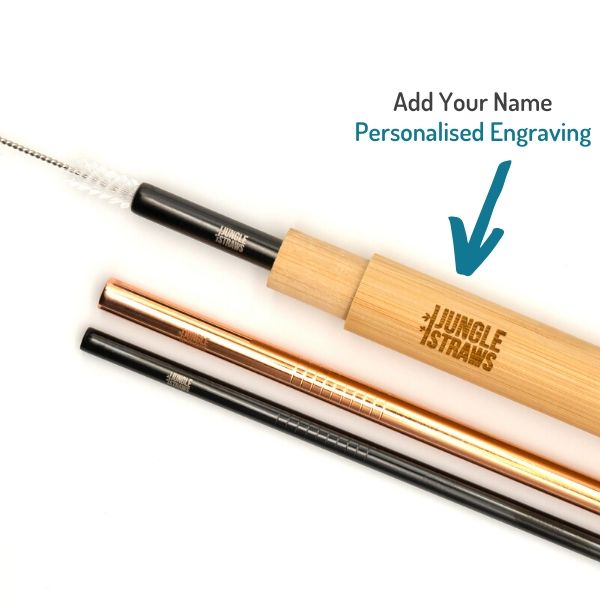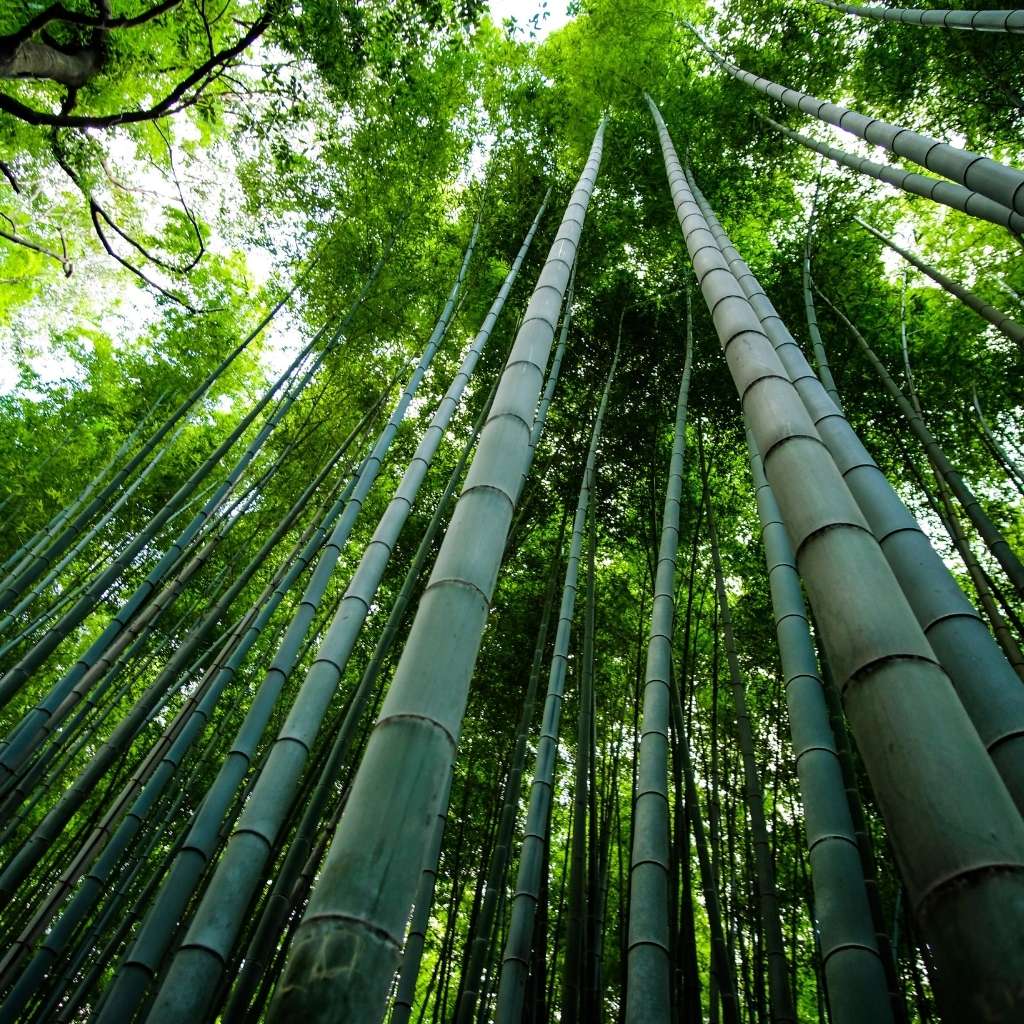Can bamboo grow in the UK?
According to the Guiness book of world records bamboo is the fastest growing plant on the planet, with some species rising as quick as 0.00002 mph or 91cm/per day! Because of this, growing bamboo is incredibly low maintenance and bamboo has developed a reputation as one of the most eco-friendly and sustainable materials in the world.
Not only is bamboo fast-growing, it also has more than 1,000 different sub-species which all have slightly different characteristics. This may seem trivial, but read on and we’ll justify the inclusion of this point later!
So, now we know a little bit more about the impressive aspects of bamboo and why many companies choose to make bamboo products, but does bamboo grow in the UK? Can we grow bamboo in the UK and moreover, should we?
It only feels right to break the question down into two distinct sections.
- Can bamboo be grown industrially in the UK?
- Can bamboo be grown in the UK by an amateur gardener?
After this, we'll run through some simple tips that help gardeners to grow bamboo in the UK and we'll explain exactly how to grow bamboo in the UK.
Let’s start with the former:
Can bamboo be grown commercially in the UK?
The short answer to this question is technically, yes, it can be. The long answer is a little bit more complicated. Let’s examine.
Firstly, it feels prudent to point out that if you’re looking for a largish quantity of bamboo for a construction project then you can certainly find British made bamboo and a quick Google search will turn up lots of fantastic options for where you can purchase the world’s fastest growing plant on our shores. Here are a few farms and nurseries that we found:
Scottish Bamboo
Jackson’s nurseries
Bamboo can be used for interior decorating, construction projects and to make furniture. For all of these purposes, it’s quite easy to buy bamboo plants to grow and harvest yourself, or buy bamboo in bulk as a raw material to use for your project.
Can bamboo be grown for profit in the UK?
Here’s where the line between sustainable and non-sustainable starts to get blurry. Growing bamboo for profit in the UK is possible, as are most things, but is it sustainable and is it even cost-effective?
The bamboo plant is native to Asia where tall mountains, heavy rainfall and bright powerful sunlight provides the perfect landscape for bamboo to thrive, spread and develop. The world’s largest species of bamboo managed to grow to a whopping 40m in height and 30cm in diameter!
The reason this bamboo plant was able to grow this tall and wide was because the climate in Asia is well suited to fast-growing plants that need a lot of water.
Bamboo in general is a tolerant plant and can survive periods of drought, however, in order for bamboo to grow at high-speed for use in mass market production, it needs a lot of water and a lot of sun.

Where is bamboo grown?
The Jungle Culture team visited dozens of bamboo farms before we started working with a small, family-run bamboo farm in Northern Vietnam. The farm owner ‘Thom Binh’ took our team to the Vietnamese mountains where we were able to witness bamboo growing in its most natural environment.
Other than Northern Vietnam, bamboo is also commonly grown in China, Japan, Korea, India and Indonesia. Several species of bamboo are grown in North and South America as well, but bamboo's true home is Asia! Growing bamboo commercially in Asia is a lot more environmentally friendly and cost-effective due to the climate, immense rainfall and year-round sunshine.
Vietnam’s mountainous Northern regions have long been famed for the production of bamboo. Very little human assistance is needed to grow bamboo in Northern Vietnam, where farmers mostly perform the task of reaping the harvest, replanting and upkeeping the land.

Instead, farmers focus on using bamboo to create products such as bamboo straws, bamboo cutlery sets & natural wooden cups.
Here is a video showing exactly how our farmers make bamboo straws: How to make bamboo straws

Should we grow bamboo for the mass market in the UK?
The goal of using bamboo to create alternatives to single-use plastic products is to create a sustainable and environmentally-friendly supply chain.
It could be argued that by using more water than is needed to grow a tropical plant in temperate climes, we are defeating the purpose of what we originally set out to do. Although it may be possible to cultivate and grow bamboo in the UK, the water needed to grow it for mass market use would be absurd.
So, for small business use and household projects, bamboo can be grown efficiently in the UK, for mass market it certainly should be left to grow in Asia, but how about for home use, gardening and exterior decoration? Can you grow bamboo in the UK if it's just in your garden?
Can bamboo be grown in Europe?
Growing bamboo in the EU is also possible, but not practical. Southern European countries have climates that are more suited to growing bamboo commercially, but still lack the tropical rainfall and intense sunlight found around Asia.
As a tropical plant, bamboo requires tropical climates to grow in abundance. But that doesn't mean that you cannot grow bamboo in the UK or in the EU... Moving on...
Can I grow bamboo in my garden?
The short answer is yes, you can, but you have to choose the species carefully otherwise you could end up with a hefty bill for the removal of your garden variety bamboo plant.
The RHS explains that there are two types of bamboo:
- Running bamboo
- Clump forming bamboo
Running bamboo
Also known as invasive bamboo, this pesty plant produces long underground stems known as rhizomes which grow far away from the base of the main plant. The RHS as well as many other reputable horticultural organisations recommend avoiding this type of bamboo plant as the stems can grow underneath the foundations of nearby buildings, causing structural damage and costing thousands of pounds to remove.
Removing invasive bamboo has been such a problem that Environet have set up a service specifically targeted at ridding your garden of this nuisance in plant form!
Clump forming bamboo
Clump forming bamboo grows in tight spaces and is generally considered to be a stable and non-invasive garden plant. In fact, the debate around bamboo and it’s invasive properties has become so heated that the American Bamboo Society have released a statement telling the public that if tended for properly, clump forming bamboo will not cause or create any invasive issues in your garden. You can read their statement on the company website.

Which species of bamboo should I grow in my garden?
Well, assuming you don’t want your house to be turned upside down by a wily bamboo root, we’ll conclude that you’re in the market for a clump forming bamboo variety.
You can use the RHS bamboo species generator to search few different cultivars based on standard gardening recommendations.
It’s generally advisable to choose a thin shooted, clump forming bamboo cultivar. Make sure to plant in the spring to give your bamboo time to build food reserves for the summer. As previously mentioned, bamboo can survive droughts and is generally a tolerable plant species, but planting bamboo in the spring is nonetheless favourable if you want your bamboo plant to flourish.
If Spring is over and you don’t want to wait, planting in early Autumn is also preferable for planting bamboo.
You can plant potted bamboo at any time of the year. If you decide to move your bamboo, ensure that the roots are left undisturbed and your plant should be fine.
How tall can bamboo grow in the UK?
So you may have heard that bamboo is world's fastest growing plant and thus, developed some "planter's anxiety". Will this giant bamboo grow so tall that it overruns my garden?
The answer is probably not.
There is nothing stopping bamboo from growing to a very high height in the UK. You can also grow giant bamboo in the UK which grows very high indeed. That being said, bamboo grown in a garden setting in the UK is unlikely to "grow out of control".
Monitor your bamboo plant while it grows and trim when necessary to avoid it becoming an unruly garden pest!
Where should I plant my bamboo?
Where you should plant your bamboo depends on which species you’ve purchased. Take care to read the RHS guidelines on how far the roots and plant spreads before choosing a spot to grow your bamboo.
Planting bamboo is fairly straightforward. You want to make sure that the hole is around twice the size of your bamboo’s root ball.
Here is a video tutorial showing how to plant bamboo
How to water my bamboo plant
Watering bamboo is quite simple. As explained, bamboo can survive periods of neglect and overwatering can be a problem, but as long as the soil is not soggy all the time, it shouldn’t prove to be too much of an issue.
Underwatering bamboo is far more common. Bamboo needs to be watered twice per week and 3-4 times during particularly dry seasons. If bamboo is being underwatered, the leaves will turn yellow, curl inwards and in some cases fall off.
If you notice that your bamboo leaves are behaving in this way, increase the amount of water you give your bamboo plant.
*IMPORTANT NOTE: Bamboo is one of very few plants that loses its leaves during the Spring. If you notice your bamboo leaves are dropping off in the spring time, don’t mistake this for underwatering, as this is a common error when growing bamboo in the UK. For more information on when to plant bamboo in the UK, read on!*
Mulching bamboo:
Bamboo’s underground stems appreciate a coating of mulch every once in a while. Using mulch protects and insulates bamboo’s roots during periods of extreme heat or during the winter.
Around 5-15cm of mulch is sufficient for growing bamboo, but if you live in a particularly cold climate, increase this by a factor of 2 and your bamboo roots will be protected.
Other ways to help promote growth are by using organic fertilisers or compost.
How to prune bamboo & how to thin out bamboo:
Pruning bamboo and thinning out bamboo plants is a time-consuming process, but it can dramatically improve the appearance of your bamboo. A well pruned bamboo plant can look majestic and beautiful, think Japanese zen gardens and you’ll know what we’re talking about!
The best time to prune and thin out your bamboo plant is in late Summer or early Autumn. You can prune bamboo using garden scissors or sometimes just a sharp knife will do the trick. An interesting characteristic of bamboo is that once a stem or branch is cut, it will never grow back in the same place.
This can be useful as it allows you to permanently control the aesthetic of your plant, but choose your trimming locations wisely as once cut, those stems are gone forever.
The objective of ‘thinning’ your bamboo plant is to separate areas of extreme clumping at the base of the bamboo, allowing the full area of the plant to receive sunlight and water. Clumping bamboo roots make it difficult to tend to the plant!
You may need a saw to thin your bamboo if the plant is mature. Once you have a worthy thinning tool, remove parts of the bamboo that are located too closely together. For a more in-depth look at how to thin a plant, check out this video tutorial: Video tutorial
Are there insects or pests that can cause problems for bamboo in the UK, EU or US?
Surprisingly no. Bamboo has remarkably few enemies. Most of the insects that can harm bamboo live in tropical climates and aren’t very present in the UK or other temperate countries.
However, on the off-chance that your bamboo is being eaten by an army of bamboo mites, don’t despair. The first thing to note is that bamboo mites will not kill your bamboo plants, but they will attack the leaves, making them a lot less attractive.
The simplest solution is to use a non-chemical insecticidal soap, but if this doesn’t work you can also purchase a predatory mite to drive away your garden pests.
Conclusion:
In conclusion, bamboo is a brilliant and versatile plant that has many purposes and can be transformed into an array of beautiful and useful products. Due to the amount of water that is needed to cultivate and grow bamboo on a mass scale, bamboo products are much better suited to being produced in Asia, where rainfall and sunlight are more plentiful.
However, for the amateur gardener, bamboo is a resilient and rewarding plant, easy to grow and easy to prune. Follow our instructions and you can’t go wrong!
If you have any comments or advice for other amateur gardeners, feel free to share in the comments below.













Renee
September 24, 2025
Please I have the bamboo that is lifting paving slabs making my garden very dangerous how can I get rid of it